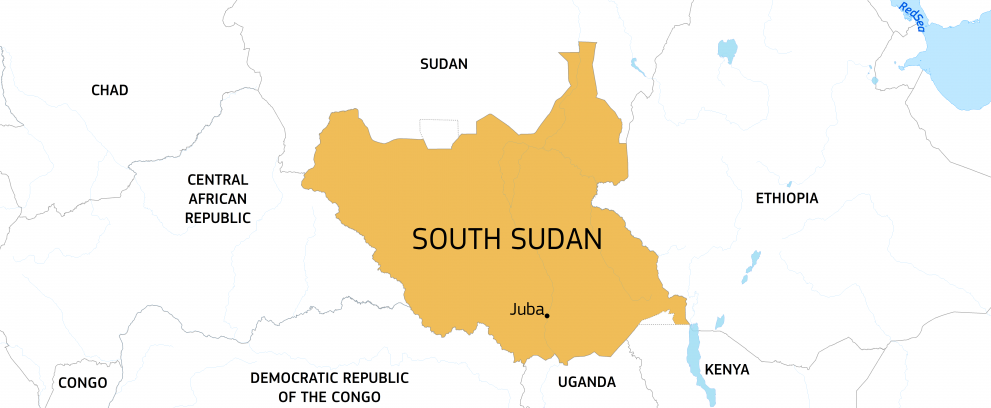Introduction
The humanitarian crisis in South Sudan is persisting due to a combination of armed conflict, inter-communal violence, economic crisis, the war in Sudan and climate-related shocks. 9.3 million people (some 70% of the population) require humanitarian assistance in 2025. During the lean period, 7.8 million people are projected to experience severe food insecurity; 2.1 million children are at risk of acute malnutrition, and cholera outbreak continues to stretch the already stressed health system.
The EU remains committed to providing lifesaving, needs-based humanitarian assistance to the most vulnerable.
What are the needs?
The new eruption of violence in March 2025 resulted in civilian casualties, destroyed or looted infrastructure, tens of thousands displaced, and limited access due to an insecure environment for aid workers.

More than 9.3 million people require humanitarian assistance in 2025, including 7.8 million people estimated to be severely food insecure in the lean season between April and July. It is estimated that 2.1 million children and 1.1 million pregnant or lactating women are at risk of acute malnutrition.
Health indicators are among the worst in the world, including the highest neonatal and maternal mortality rates globally and limited access to health facilities. The country is also suffering from the ongoing cholera outbreak. As of April, the overall number of cases surpassed 45,600, with 841 deaths.
The situation in South Sudan is compounded by the impact of the war in Sudan. As of April, some 1.1 million people have arrived in the country.
In addition, more than 4 million people are displaced, including 1.84 million internally and nearly 2.3 million as refugees in neighbouring countries.
The humanitarian crisis in South Sudan is also a protection crisis, with high levels of sexual and gender-based violence.
Humanitarian actors operate in a volatile and complex environment with huge logistical challenges. Repeated acts of violence against humanitarian workers and looting of humanitarian assets negatively affect access and delivery of humanitarian aid.

How are we helping?
In 2025, the EU has allocated an initial €70 million for humanitarian actions covering the response to food insecurity, health, education, WASH, protection, logistics and other needs, including as a consequence of the Sudan war.
In addition, we allocated €1 million to support a response to the cholera outbreak.
Food insecurity and malnutrition are at a record high across the country. The EU is helping to reduce excess mortality and morbidity through emergency food assistance, nutrition interventions and cash assistance, including in hard-to-reach areas.
Furthermore, €5.5 million are allocated to support static and mobile interventions for education in emergencies, focusing on primary education for newly displaced and out-of-school children.
In 2024, the EU allocated €110.26 million, making the EU the second largest humanitarian donor in the country.

In addition, EU humanitarian funds help address critical humanitarian needs through emergency lifesaving activities, particularly when facing new shocks, using integrated multi-sector approaches, mobile outreach teams and cash modality.
EU-funded humanitarian projects also provide humanitarian protection assistance to communities affected by violence in the country, new displacement, and/or climate change.
The EU also supports the humanitarian response to the consequences of the Sudan crisis in border areas (camp management, onward transportation) and in the most vulnerable communities affected by the large number of returns.
The EU continues to strongly support principled humanitarian assistance and advocate for the protection of humanitarian workers and their safe and sustained access to all parts of the country.
Last updated: 14/04/2025
Facts & figures
9.3 million people in need of humanitarian assistance in 2024 (OCHA)
7.8 million people are estimated to require emergency food aid between April and July 2025 (IPC)
Over 1.84 million people are internally displaced (IOM)
Around 2.3 million South Sudanese refugees in neighbouring countries (UNHCR)
EU humanitarian funding:
€71 million in 2025
€110.2 million in 2024
More than €1.2 billion since 2011

